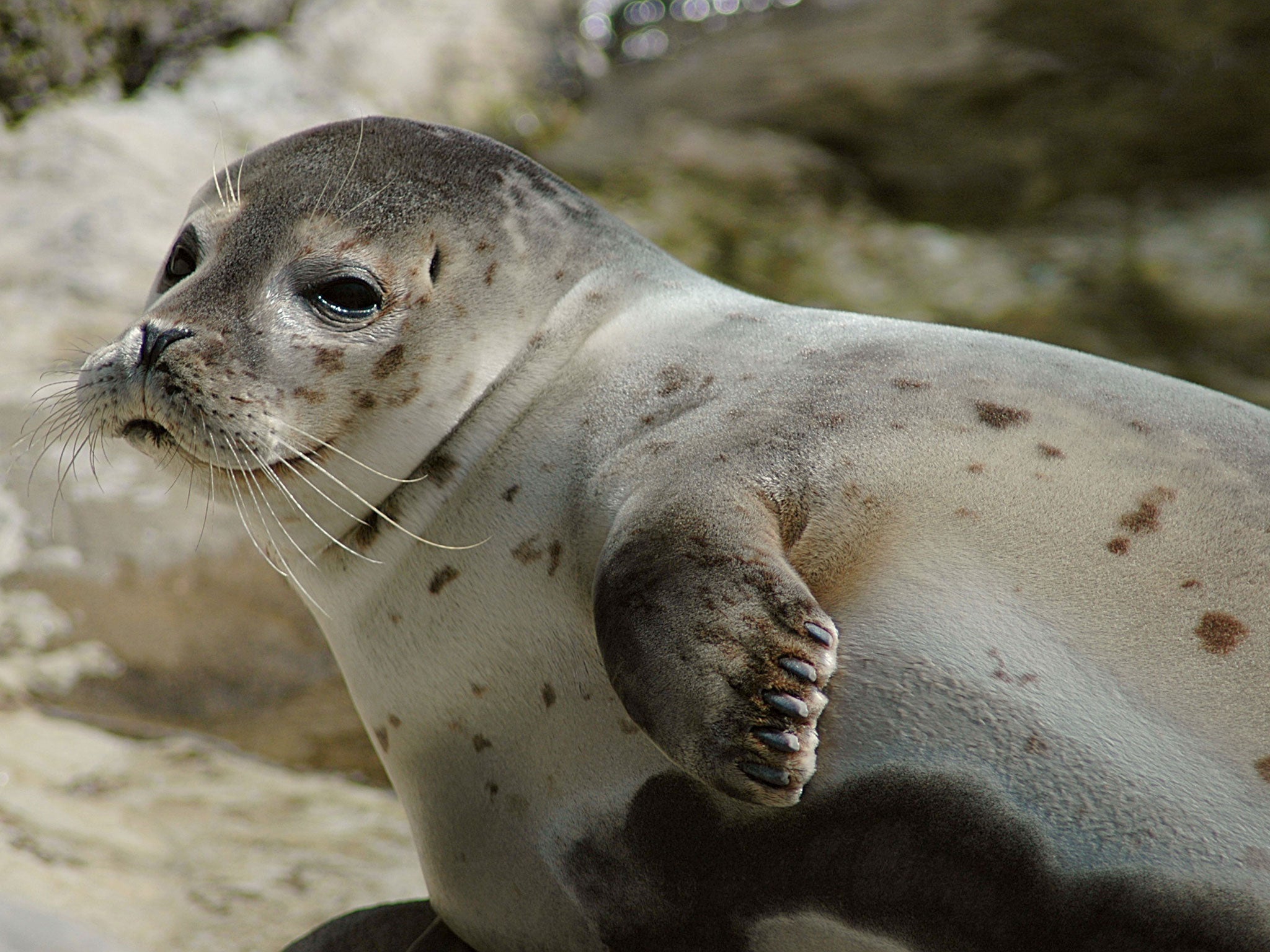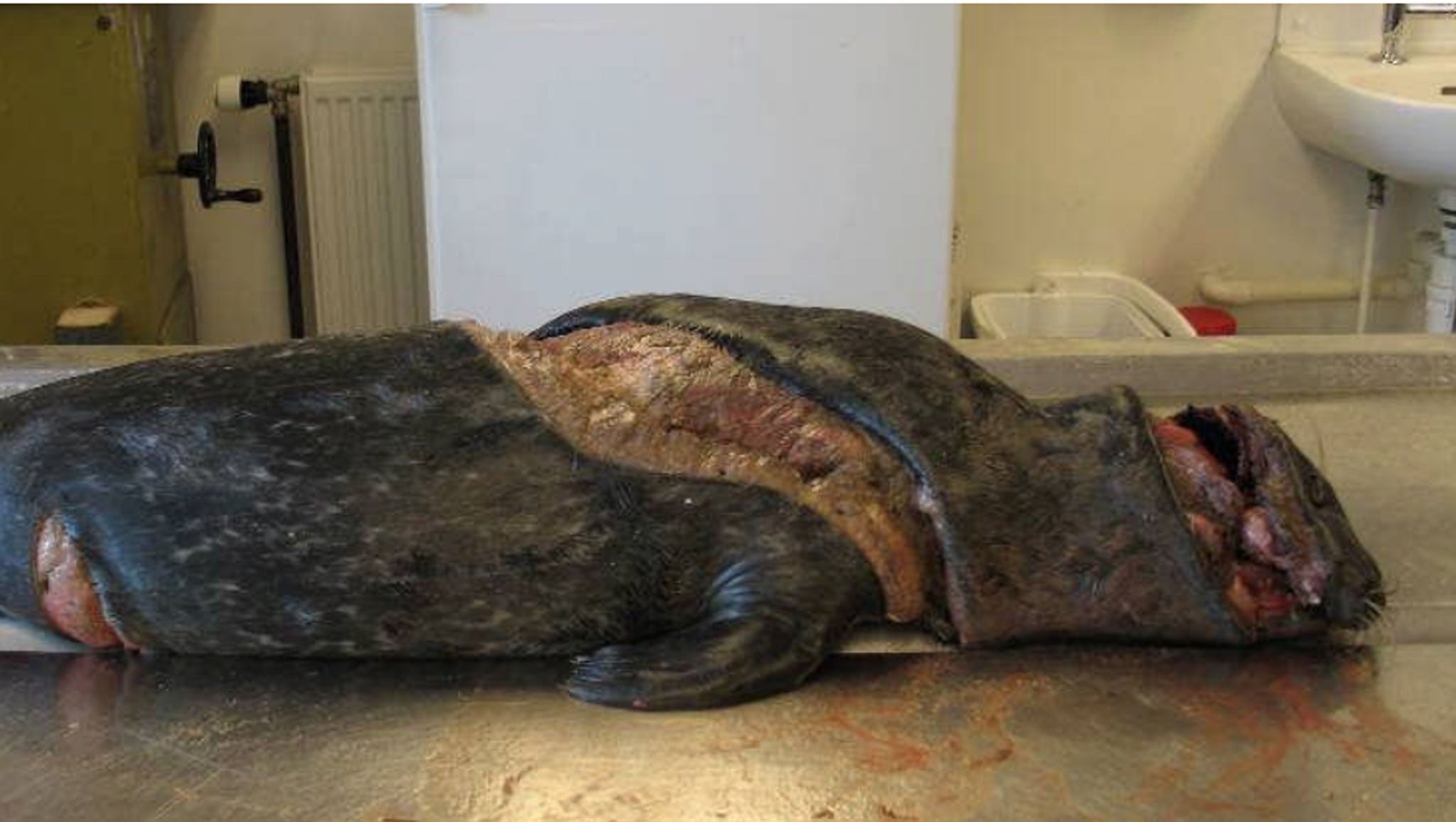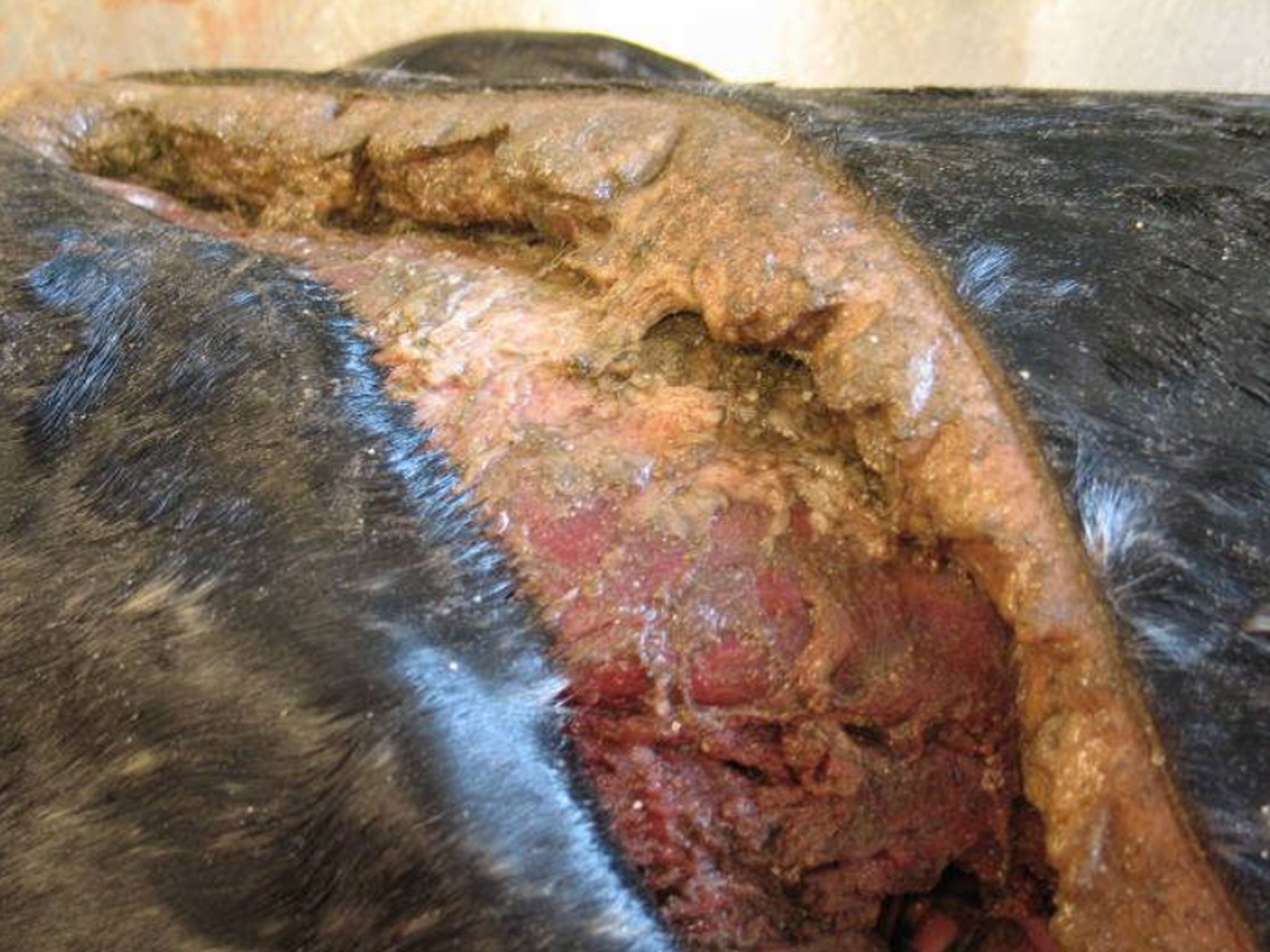Scottish seals still sliced to death by propellers ‘because ministers are breaking international law’
Warning: Graphic images below. Experts think seals are attracted to the sound made by propellers - and activists say EU legislation demands immediate action be taken to protect the marine mammals

Seals in Scotland are being maimed and killed by ships’ propellers and ministers are breaking the law by doing nothing to save them, according to a panel of leading wildlife groups.
The National Trust, Wildlife Trusts and other agencies have joined forces with the Whale and Dolphin Conservation group in writing to the UK and Scottish parliaments demanding immediate action to protect the animals.
For years now experts and fishermen have been finding the corpses of harbour seals washed up on the east coast of Scotland with horrific “corkscrew injuries” – gaping wounds spiralling down their bodies from head to tail with deep, clear-cut edges.
The government agency Marine Scotland has commissioned research into the cause of these injuries from St Andrews’ Sea Mammal Research Unit (SMRU), but in their letter activists warned this process is taking too long.
In the SMRU's latest report on the issue, they said that not only are propellers highly likely to be reason for the unusual injuries, but that they all occur in the same way - starting on the face.
This, they say, means that seals are swimming head-first into slow-moving or stationary vessels, attracted by “some aspect of the acoustic output of the device”.

Citing the EU’s Habitats Directive, which lists Scotland’s harbour seals as a protected species, the wildlife activists told ministers: “We would strongly urge you to act on the best available evidence – that certain kinds of ducted (covered) propellers kill and injure marine mammals.
“By failing to maintain the harbour seal population… the UK Government is therefore arguably in breach of the Habitats Directive.
“Your response to our letter stating that the Scottish Government will not currently attempt to introduce any mitigation measures in respect of a known cause of mortalities for a declining Annex II species is a continuation of that breach and is a failure to provide precautionary management as required under the Habitats Directive. Attempts to rectify these breaches must therefore be made immediately.”

More than 80 seals have been confirmed killed in Scotland with corkscrew injuries, according to the Guardian, and the environmental agencies warned that populations of harbour seals could be wiped out altogether.
If that happens, the Government could be liable to multimillion-pound fines under EU law.
“We are failing seals,” Sarah Dolman, from Whale and Dolphin Conservation, told the newspaper.
“The Scottish Government needs to act on existing evidence to prevent their deaths or iconic harbour seals will disappear from the east coast of Scotland in just 20 years.”
A spokesperson for the Scottish Government said that while “good progress” was being made determining the cause of the injuries, the ducted propeller explanation had not yet been proven with “conclusive results”.
Join our commenting forum
Join thought-provoking conversations, follow other Independent readers and see their replies
Comments
Bookmark popover
Removed from bookmarks